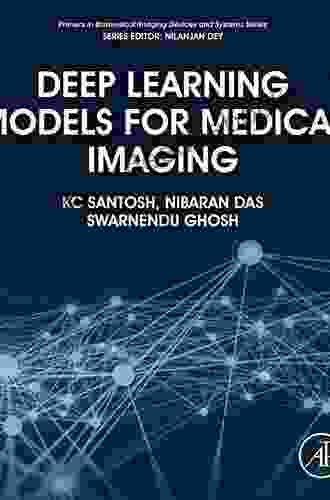Legitimacy and Accountability in Weak States: Elements in Political Economy

Weak states are characterized by a lack of effective authority, instability, and a limited capacity to provide basic services and enforce the rule of law. In such states, legitimacy and accountability are often weak or non-existent. This article explores the relationship between legitimacy and accountability in weak states, examining the political economy factors that contribute to state weakness and undermine accountability mechanisms. It also discusses potential policy measures to address these challenges and strengthen governance in weak states.
Legitimacy is the belief that a government has the right to rule. It is based on the perception that the government is fair, just, and responsive to the needs of the people. In weak states, legitimacy is often weak or non-existent. This is due to a number of factors, including:
- A lack of effective authority: Weak states often lack the capacity to provide basic services, enforce the rule of law, and protect citizens from violence. This can lead to a loss of confidence in the government and a decrease in legitimacy.
- Instability: Weak states are often plagued by instability, including civil war, political violence, and coups. This can further erode legitimacy and make it difficult for the government to establish a strong foundation.
- Corruption: Corruption is a major problem in weak states. It undermines trust in the government and makes it difficult for citizens to hold their leaders accountable.
- Patronage and clientelism: Patronage and clientelism are political practices that involve the distribution of favors and resources to supporters in exchange for political support. These practices can undermine legitimacy by creating a system of unequal access to resources and opportunities.
Accountability refers to the ability of citizens to hold their government accountable for its actions. In weak states, accountability is often weak or non-existent. This is due to a number of factors, including:
4.8 out of 5
| Language | : | English |
| File size | : | 2293 KB |
| Text-to-Speech | : | Enabled |
| Screen Reader | : | Supported |
| Enhanced typesetting | : | Enabled |
| Word Wise | : | Enabled |
| Print length | : | 75 pages |
- A lack of transparency: Weak states often lack transparency in their operations. This makes it difficult for citizens to access information about how the government is using their resources and making decisions.
- Weak institutions: Weak states often have weak institutions, such as a free press, an independent judiciary, and a strong civil society. These institutions are essential for holding the government accountable and ensuring that it is responsive to the needs of the people.
- A culture of impunity: In weak states, there is often a culture of impunity, in which those in power are not held accountable for their actions. This can lead to a lack of trust in the justice system and make it difficult for citizens to seek redress for grievances.
Legitimacy and accountability are closely related concepts. A government that is legitimate is more likely to be accountable to its citizens. Conversely, a government that is accountable to its citizens is more likely to be perceived as legitimate. This relationship is particularly important in weak states, where both legitimacy and accountability are often weak.
There are a number of policy measures that can be taken to strengthen legitimacy and accountability in weak states. These include:
- Improving security and stability: One of the most important steps that can be taken to strengthen legitimacy and accountability in weak states is to improve security and stability. This can be done through a variety of measures, including increasing the capacity of the security forces, improving the rule of law, and promoting reconciliation and peacebuilding efforts.
- Fighting corruption: Corruption is a major threat to legitimacy and accountability in weak states. It can be addressed through a variety of measures, including strengthening anti-corruption laws and enforcement, promoting transparency and accountability in government operations, and empowering citizens to report and fight corruption.
- Building strong institutions: Strong institutions are essential for holding the government accountable and ensuring that it is responsive to the needs of the people. These institutions include a free press, an independent judiciary, and a strong civil society.
- Promoting transitional justice: Transitional justice is a process that seeks to address past human rights abuses and promote reconciliation in post-conflict societies. It can play an important role in strengthening legitimacy and accountability in weak states by providing victims with a sense of justice and closure and helping to build trust between citizens and the government.
- Negotiating political settlements: Political settlements are agreements between different factions in a society that aim to end conflict and establish a new political order. These settlements can play an important role in strengthening legitimacy and accountability by providing a framework for the distribution of power and resources and establishing mechanisms for holding the government accountable.
Legitimacy and accountability are essential for effective governance in weak states. By addressing the political economy factors that contribute to state weakness and undermine legitimacy and accountability mechanisms, it is possible to strengthen governance and improve the lives of citizens. The policy measures discussed in this article provide a starting point for strengthening legitimacy and accountability in weak states.
4.8 out of 5
| Language | : | English |
| File size | : | 2293 KB |
| Text-to-Speech | : | Enabled |
| Screen Reader | : | Supported |
| Enhanced typesetting | : | Enabled |
| Word Wise | : | Enabled |
| Print length | : | 75 pages |
Do you want to contribute by writing guest posts on this blog?
Please contact us and send us a resume of previous articles that you have written.
 Book
Book Page
Page Chapter
Chapter Text
Text Story
Story Reader
Reader Paperback
Paperback Newspaper
Newspaper Paragraph
Paragraph Sentence
Sentence Bookmark
Bookmark Glossary
Glossary Bibliography
Bibliography Foreword
Foreword Preface
Preface Synopsis
Synopsis Annotation
Annotation Footnote
Footnote Tome
Tome Bestseller
Bestseller Classics
Classics Biography
Biography Autobiography
Autobiography Memoir
Memoir Thesaurus
Thesaurus Librarian
Librarian Card Catalog
Card Catalog Stacks
Stacks Archives
Archives Periodicals
Periodicals Study
Study Scholarly
Scholarly Lending
Lending Reading Room
Reading Room Interlibrary
Interlibrary Literacy
Literacy Study Group
Study Group Storytelling
Storytelling Awards
Awards Textbooks
Textbooks Miriam Krieger
Miriam Krieger Christine Shreve
Christine Shreve Victoria Dutu
Victoria Dutu Joan Didion
Joan Didion Linda Forbringer
Linda Forbringer Matthew Gasteier
Matthew Gasteier Siobhan Phillips
Siobhan Phillips John Eade
John Eade C D Blue
C D Blue C Hallman
C Hallman Moyshe Rekhtman
Moyshe Rekhtman Lauran Paine Jr
Lauran Paine Jr C B Lee
C B Lee Clif Johnston
Clif Johnston Paul Mees
Paul Mees Kordel Lentine
Kordel Lentine Yuri Herrera
Yuri Herrera Annette Valentine
Annette Valentine Kees Van Den End
Kees Van Den End Jean Baxter
Jean Baxter
Light bulbAdvertise smarter! Our strategic ad space ensures maximum exposure. Reserve your spot today!

 Douglas PowellLove for Sale: A Comprehensive Exploration of Pop Music's Enduring Allure in...
Douglas PowellLove for Sale: A Comprehensive Exploration of Pop Music's Enduring Allure in... Charlie ScottFollow ·12.1k
Charlie ScottFollow ·12.1k Aron CoxFollow ·5.8k
Aron CoxFollow ·5.8k Colin RichardsonFollow ·11.2k
Colin RichardsonFollow ·11.2k Forrest BlairFollow ·10.4k
Forrest BlairFollow ·10.4k Dan BrownFollow ·9.5k
Dan BrownFollow ·9.5k Derrick HughesFollow ·6.6k
Derrick HughesFollow ·6.6k Corey HayesFollow ·14.3k
Corey HayesFollow ·14.3k Francis TurnerFollow ·5.3k
Francis TurnerFollow ·5.3k

 Franklin Bell
Franklin BellSecond Edition Pdf No Audio: A Comprehensive Guide to the...
The Second Edition...

 Jackson Blair
Jackson BlairTrends and Issues in Instructional Design and Technology
Instructional...

 Mario Vargas Llosa
Mario Vargas LlosaEnchanting Enigma Variations and Triumphant Pomp and...
The Enigma Variations: A...

 Dwight Blair
Dwight BlairTime Between Us: A Novel That Explores the Power of...
Prepare to be swept away by...
4.8 out of 5
| Language | : | English |
| File size | : | 2293 KB |
| Text-to-Speech | : | Enabled |
| Screen Reader | : | Supported |
| Enhanced typesetting | : | Enabled |
| Word Wise | : | Enabled |
| Print length | : | 75 pages |














